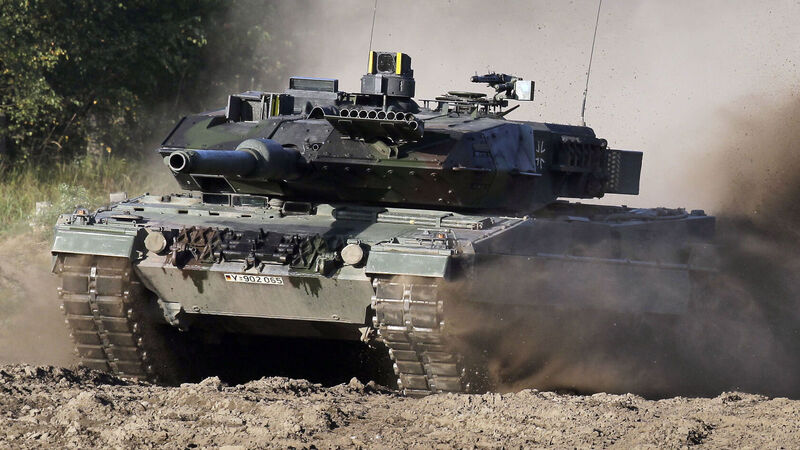Irish Examiner view: Leopard must change its spots

A Leopard 2 tank during a demonstration event held for the media by the German Bundeswehr in Munster near Hannover, Germany in September 2011. Picture: Michael Sohn, File
Mixed messages coming from Berlin about the German willingness to supply Leopard 2 battle tanks to Ukraine — and also permit countries which have purchased the same tanks send them to the Ukrainian army — has put the country in a bind it never expected or anticipated.
In the aftermath of the Second World War, in which an emboldened and cruel Germany under the rule of Adolf Hitler annexed large tracts of Europe, razed towns, villages, and cities and slaughtered millions of people, the country has changed.















